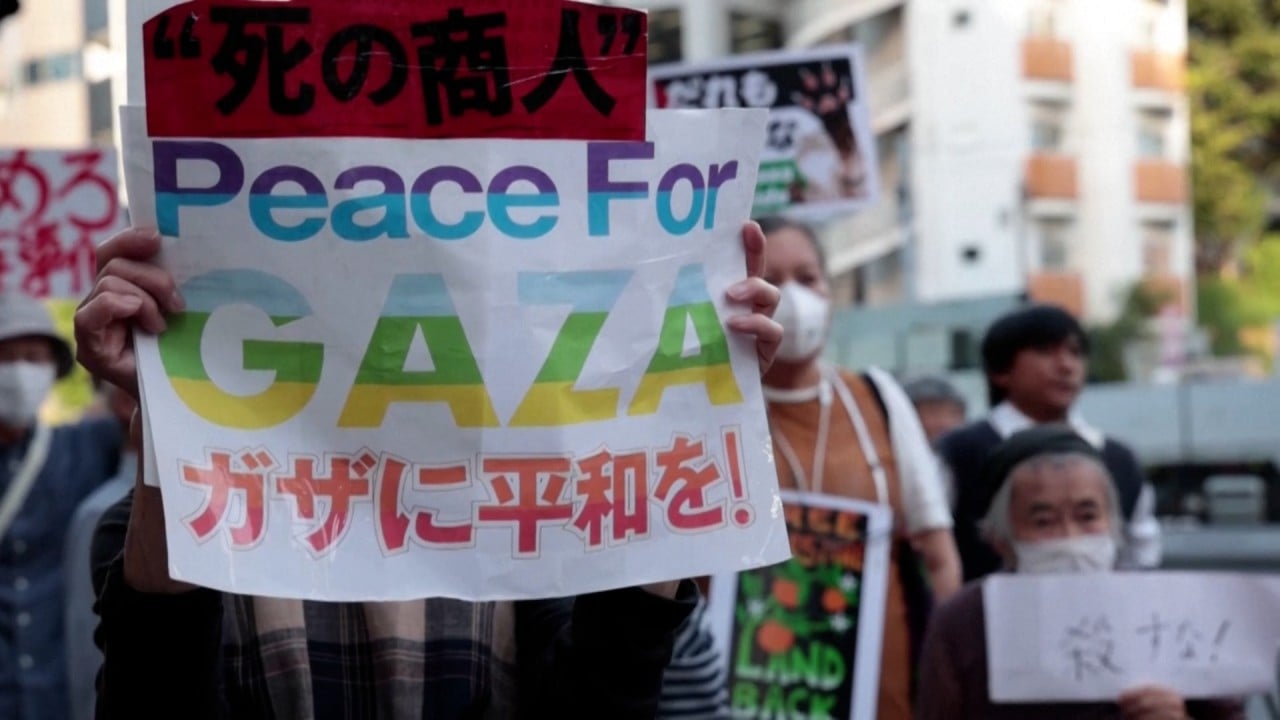In simple terms, an illness occurs when the body’s qi – the complementary vital forces of yin and yang – is in disharmony, and this imbalance shows up as symptoms. To be effective, a Chinese remedy treats the cause, not the symptoms, and this is achieved by restoring the harmony and balance of the vital forces.
Chinese medicine may sound unscientific or even irrational, but it is actually well chronicled in data and research. Inscriptions about illness on bones date back to the Shang dynasty in the second millennium BC, and the earliest medical text was compiled during the Warring States period (475-221 BC).
The symptoms are unambiguous, and they all point to an epic travesty of humanity. Yet, the diagnoses and remedies proposed by the US and China are profoundly different.
The current Israel-Gaza war is symptomatic of a decades-long chronic condition and this, in turn, has deep historical roots. The Holy Land has been home to both Jews and Muslims at various times over the centuries. This historical fact cannot be undone, and it is an indispensable part of any diagnosis.
The heralded two-state solution is long on consensus, but short on traction, and this is because negotiations have largely revolved around the symptoms.
The moral collapse of Western leaders over Palestine
The moral collapse of Western leaders over Palestine
Ultimately, the sine qua non is that the two-state solution must be moved from the hallways of the United Nations onto the ground of the Holy Land. The move from rhetoric to action is a geopolitical quagmire, and it requires time, but China plays the long game, and its long-term strategy is not dictated by short election cycles.
China’s interests are best safeguarded in a globalised world, and there’s only one way to achieve this – to work with multipolar vital forces to maintain balance. Unilateral actions, military or otherwise, are self-defeating, and not in China’s interest.
Together with 119 other countries, China voted in support of a UN resolution, calling for an “immediate, durable and sustained humanitarian truce leading to a cessation of hostilities”. The US is the only G7 country that voted against it; France voted for it, and the other five abstained.
The US’ inability to secure a unanimous G7 veto adds to the growing imperative for a multipolar world.
Following Germany’s abstention, Chinese President Xi Jinping urged German Chancellor Olaf Scholz to “solve the root cause” and “promote the construction of a balanced, effective and sustainable security architecture” for the Russia-Ukraine and Israel-Gaza wars.
Why the UN, not Israel, should oversee peacekeeping and security in Gaza
Why the UN, not Israel, should oversee peacekeeping and security in Gaza
Meanwhile, French President Emmanuel Macron recognised Israel’s right to self-defence, but also urged it to stop bombing Palestinian civilians, asserting that “there is no reason for that and no legitimacy”. Macron is pushing for French strategic autonomy, and he hopes the US and UK will join his call for a ceasefire.
Ironically, it was not US President Joe Biden, leader of the “free world”, who stood up unequivocally for the rights of all civilians in this war. Rather, it was King Abdullah II of Jordan, who denounced “violence waged against innocent civilians in Gaza, in the West Bank, and Israel”, saying human rights should not “stop at borders … races … religions”.
King Abdullah II is considered a direct descendant of Prophet Muhammed, and his moral courage will resonate with the Chinese approach of balancing vital forces.
These are early days, but the emerging multipolar world order augurs well for the two-state solution by giving it a much-needed push – decades after the partition plan for Palestine was conceived and adopted by the UN in 1947.
Lub Bun Chong is a partner of C Consultancy and Helios Strategic Advisors, and the author of “Managing a Chinese Partner: Insights From Four Global Companies”.


